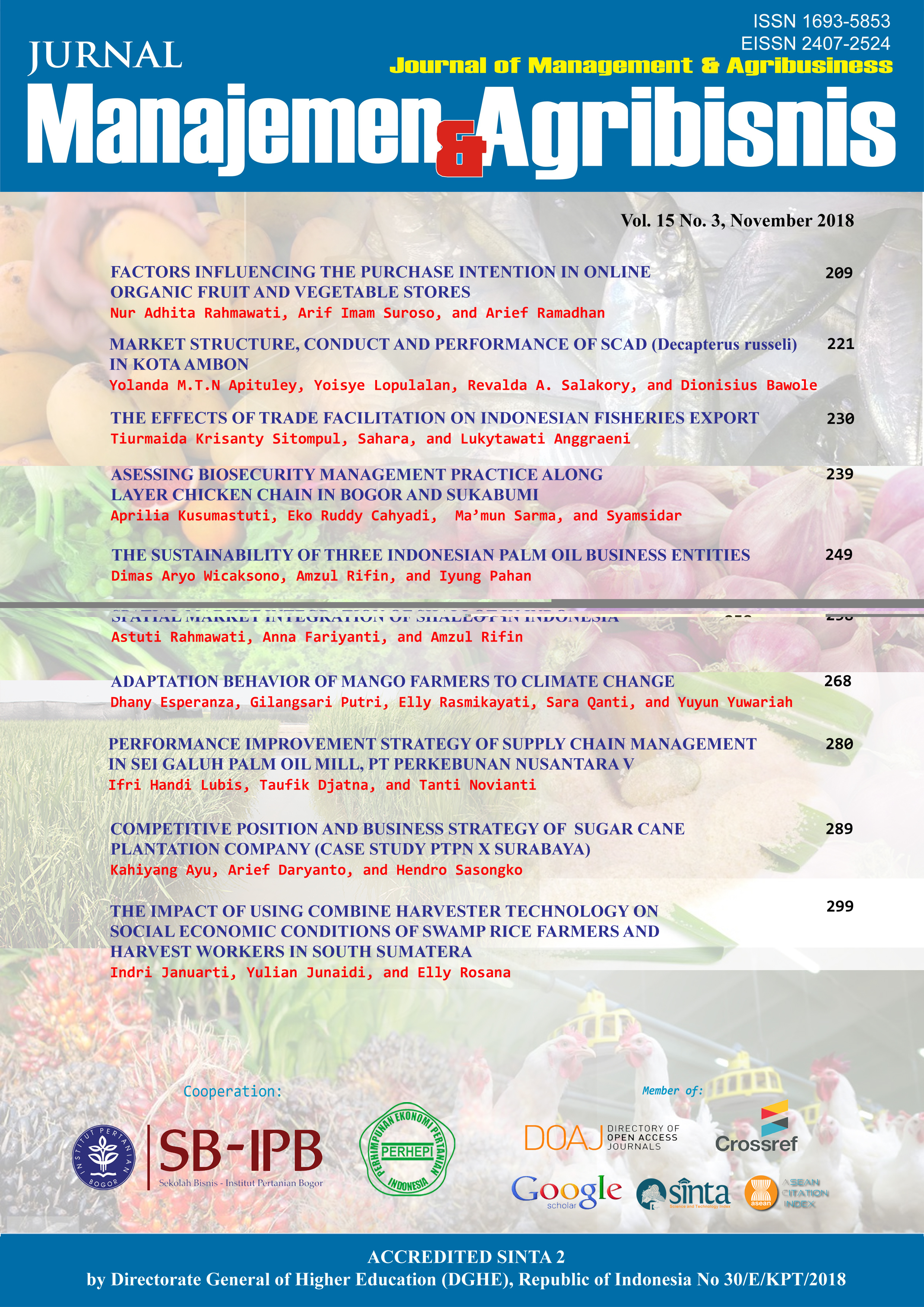Abstract
The continuing climate change phenomenon causes disruption to agricultural sector including seasonal fruits such as mangoes. To anticipate the negative effects of climate change, the farmers adapt themselves in order to maintain their mango farming. The dynamics of mango farmers related to the adaptation of agribusiness strategy due to climate change occur at the level of production/cultivation and marketing. The objectives of this study are to: (1) Identify the factors that influence the behavior of mango farmers' adaptation as an effort to minimize the risks due to climate change; (2) Describe the adaptation behavior of mango farmers based on interactions among the factors that influence the adaptation by using causal loop diagrams. The results showed that the adaptation behavior of mango farmers was constructed on 37 variables from 8 categories, namely, climate change, production, marketing, income, financing, productivity, information adoption, and innovation. Adaptation behavior of mango farmers to climate change arises not only as the farmers’ effort to maintain the mango farming they run but also to maintain their lives. The use of growth regulator and pesticides are shortcuts taken by farmers to increase production without realizing the side effects that can arise and accumulate in the long term. The income variable is the leverage point of the behavior pattern that is reflected in the causal loop diagram. Small changes in income will cause major changes in the overall system described.
Keywords: climate change, mango farmer, system thinking, causal loop diagram, system archetypes
Authors
Authors who publish with this journal agree to the following terms:
- Authors retain copyright and grant the journal right of first publication with the work simultaneously licensed under a Creative Commons Attribution License that allows others to share the work with an acknowledgement of the work's authorship and initial publication in this journal.
- Authors are able to enter into separate, additional contractual arrangements for the non-exclusive distribution of the journal's published version of the work (e.g., post it to an institutional repository or publish it in a book), with an acknowledgement of its initial publication in this journal.
- Authors are permitted and encouraged to post their work online (e.g., in institutional repositories or on their website) prior to and during the submission process, as it can lead to productive exchanges, as well as earlier and greater citation of published work (See The Effect of Open Access).

